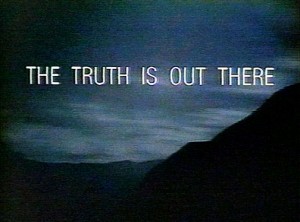December 19th, 2011 by Bryan Vartabedian, M.D. in Opinion
No Comments »

 Let’s say you’re a doctor and you have an idea, opinion, or a new way of doing things. What do you do with it?
Let’s say you’re a doctor and you have an idea, opinion, or a new way of doing things. What do you do with it?
It used to be that the only place we could share ideas was in a medical journal or from the podium of a national meeting. Both require that your idea pass through someone’s filter. As physicians we’ve been raised to seek approval before approaching the microphone.
This is unfortunate. When I think about the doctors around me, I think about the remarkable mindshare that exists. Each is unique in the way they think. Each sees disease and the human condition differently. But for many their brilliance and wisdom is stored away deep inside. They are human silos of unique experience and perspective. They are of a generation when someone else decided if their ideas were worthy of discussion. They are of a generation when it was understood that few ideas are worthy of discussion. They are the medical generation of information isolation.
I spoke with a couple of students recently about Read more »
*This blog post was originally published at 33 Charts*
October 19th, 2011 by John Mandrola, M.D. in Opinion
No Comments »

 One of the best things about writing a blog is when life provides Eureka moments. I read an essay this weekend that literally jolted the blogger in me.
One of the best things about writing a blog is when life provides Eureka moments. I read an essay this weekend that literally jolted the blogger in me.
If you are an athlete seeking a pinnacle; (That about covers all of us.)
Or a doctor striving to be the best that you can be–for humanity;
Or a parent wanting to provide the best for your children;
Or a learner wishing you could some day be smart enough to work in a think tank; (Ever wonder what a think tank looks like?)
Or perchance, Read more »
*This blog post was originally published at Dr John M*
May 26th, 2011 by Elaine Schattner, M.D. in Health Tips, News, Opinion
No Comments »

Last week Aaron Sorkin wrote for The Atlantic a piece in which he details his daily news feed, in What I Read. He’s not into blogs:
When I read the Times or The Wall Street Journal, I know those reporters had to have cleared a very high bar to get the jobs they have. When I read a blog piece from “BobsThoughts.com,” Bob could be the most qualified guy in the world but I have no way of knowing that because all he had to do to get his job was set up a website–something my 10-year-old daughter has been doing for 3 years. When The Times or The Journal get it wrong they have a lot of people to answer to. When Bob gets it wrong there are no immediate consequences for Bob except his wrong information is in the water supply now so there are consequences for us.
PZ Meyers, whose tagline for Pharyngula at ScienceBlogs is a bit crass for my taste, but with whom I often agree, writes On What’s Wrong With the Media:
This is the problem, that people blithely assume that because it is in the NY Times or the WSJ that it must be right — I’d rather read BobsThoughts.com because there, at least, poor lonely Bob must rely on the quality of his arguments rather than the prestige of his name and affiliation to persuade. Read more »
*This blog post was originally published at Medical Lessons*
April 17th, 2011 by Elaine Schattner, M.D. in Opinion
No Comments »

Recently Ed Silverman of Pharmalot considers the case of a ghost-written medical text’s mysterious disappearance. The 1999 book, “Recognition and Treatment of Psychiatric Disorders: A Psychopharmacology Handbook for Primary Care,” (reviewed in a psychiatry journal here) came under scrutiny last fall when it became evident that the physician “authors” didn’t just receive money from a relevant drug maker, SmithKline Beecham; they received an outline and text for the book from pharmaceutical company-hired writers.

poster for the X-Files
Now the book’s listing is gone from the website of STI (Scientific Therapeutic Information), the company that provided the authorship “help.” I tried to get a copy of the handbook on Amazon.com, where it’s currently out-of-stock. The book is listed in the Library of Congress on-line catalog: #99015420.
I’m reminded of clinical handbooks I used all the time when I was practicing hematology and oncology. At the hospital, I’d get freebie, small-sized chemo regimen primers that conveniently fit into my white coat pocket. In retrospect, perhaps I didn’t adequately check the authors’ credentials on those mini-book sources. It was too easy to take that information and keep it at hand, literally, especially in the times before we had constant Web access. Read more »
*This blog post was originally published at Medical Lessons*
March 31st, 2011 by Elaine Schattner, M.D. in Opinion
No Comments »

The Times ran an intriguing experiment on its Well blog yesterday: a medical problem-solving contest. The challenge, based on the story of a real girl who lives near Philadelphia, drew 1379 posted comments and closed this morning with publication of the answer.
Dr. Lisa Sanders, who moderated the piece, says today that the first submitted correct response came from a California physician; the second came from a Minnesota woman who is not a physician. Evidently she recognized the condition’s manifestations from her experience working with people who have it.
 The public contest – and even the concept of using the word “contest” – to solve a real person’s medical condition interests me a lot. This kind of puzzle is, as far as I know, unprecedented apart from the somewhat removed domains of doctors’ journals and on-line platforms intended for physicians, medical school problem-based learning cases, clinical pathological conferences (CPC’s) and fictional TV shows. Read more »
The public contest – and even the concept of using the word “contest” – to solve a real person’s medical condition interests me a lot. This kind of puzzle is, as far as I know, unprecedented apart from the somewhat removed domains of doctors’ journals and on-line platforms intended for physicians, medical school problem-based learning cases, clinical pathological conferences (CPC’s) and fictional TV shows. Read more »
*This blog post was originally published at Medical Lessons*
 Let’s say you’re a doctor and you have an idea, opinion, or a new way of doing things. What do you do with it?
Let’s say you’re a doctor and you have an idea, opinion, or a new way of doing things. What do you do with it?















